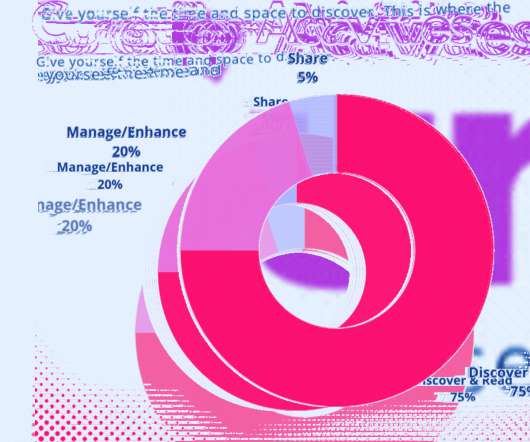My Personal Knowledge Management Approach
Clark Quinn
MARCH 29, 2022
First, Harold’s Personal Knowledge Management ( PKM ) model has three components: seek, sense, and share. With much experience, I trust it. On LinkedIn, a while ago I actively removed all my follows on my connections, and only retained ones for folks I trust. So that’s a rough cut at my PKM process.































Let's personalize your content